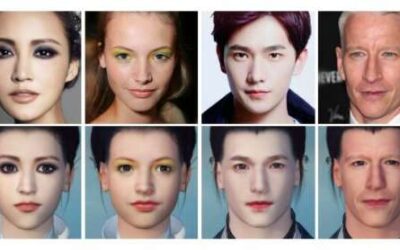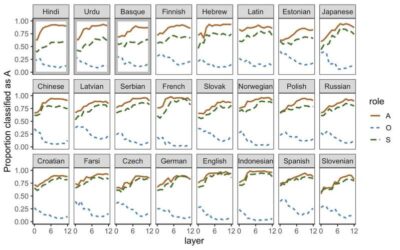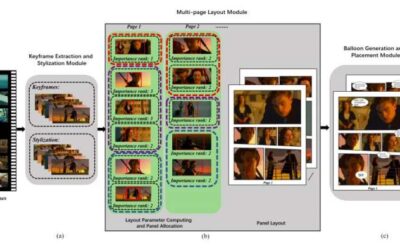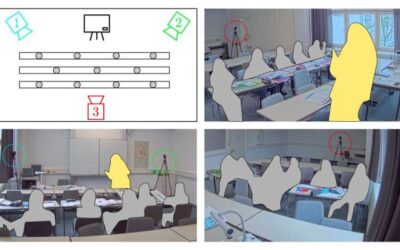In recent years, videogame developers and computer scientists have been trying to devise techniques that can make gaming experiences increasingly immersive, engaging and realistic. These include methods to automatically create videogame characters inspired by real...
Computer Sciences
An open-source machine learning framework to carry out systematic reviews
When scientists carry out research on a given topic, they often start by reviewing previous study findings. Conducting systematic literature reviews or meta-analyses can be very challenging and time consuming, as there are often huge amounts of research focusing on...
Researchers examine how multilingual BERT models encode grammatical features
Over the past few decades, researchers have developed deep neural network-based models that can complete a broad range of tasks. Some of these techniques are specifically designed to process and generate coherent texts in multiple languages, translate texts, answer...
A system that automatically generates comic books from movies and other videos
Over the past few years, computer scientists have created numerous computational techniques that can automatically generate texts, images and other types of data. These models are highly advantageous, particularly for creating data or creative works that are demanding...
A new framework for robotics applications that merges reservoir computing with origami
Reservoir computing is a highly promising computational framework based on artificial recurrent neural networks (RNNs). Over the past few years, this framework was successfully applied to a variety of tasks, ranging from time-series predictions (i.e., stock market or...
Deep learning-based assessment of student engagement could aid classroom research
Past research has identified student engagement, or the extent to which students participate and are involved in classroom activities, as a crucial factor determining both the quality of education programs and the academic performance of individual students. As a...
Using AUVs to control the outbreak of crown-of-thorns starfish in Australia’s Great Barrier Reef
Over the past few decades, people around the world have been dealing with a vast variety of environmental threats. In Australia, these include risks associated with the deterioration and destruction of aquatic plants, animals and other organisms that inhabit...
A technique to estimate emotional valence and arousal by analyzing images of human faces
In recent years, countless computer scientists worldwide have been developing deep neural network-based models that can predict people's emotions based on their facial expressions. Most of the models developed so far, however, merely detect primary emotional states...
Researchers develop a system that can recommend personalized and healthy recipes
Researchers at Rensselaer Polytechnic Institute and IBM Research in New York have recently created pFoodReQ, a system that can recommend recipes tailored around the preferences and dietary needs of individual users. This system is outlined in a paper pre-published on...
Exploring the underpinnings of shadowbanning on Twitter
In recent years, social media platforms have been developing and implementing a variety of strategies to moderate content published by their users and ensure that it is not offensive or inappropriate. This has sparked significant debate, with some users claiming that...










